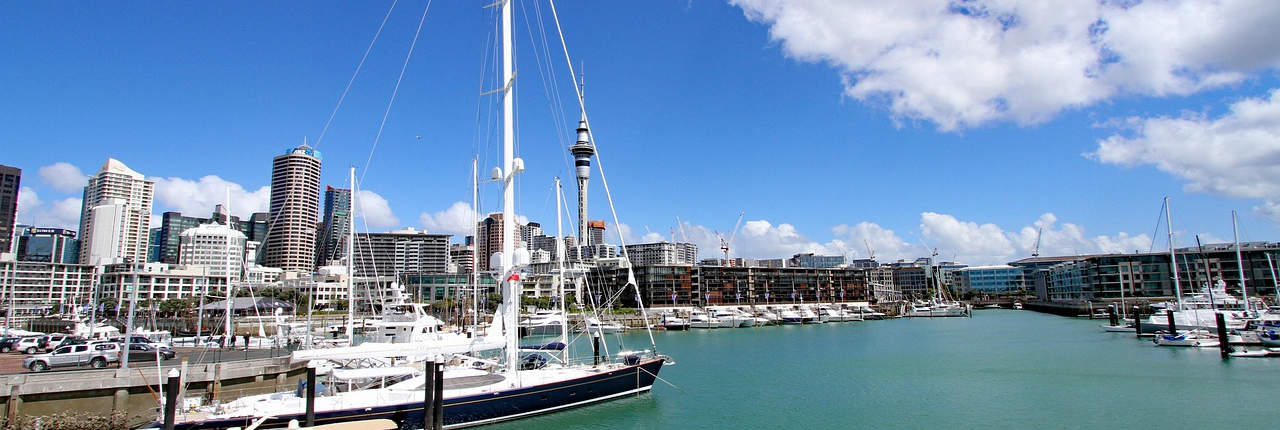Changes the Government announced last year to improve the employer assisted temporary work visa system are coming into effect on 27 July 2020.
Essential Skills work visas – Remuneration and median wage
The combination of ANZSCO and salary to assess skill level is being replaced with a simple remuneration threshold, aligned to the national median wage calculated by Statistics NZ.
Remuneration will be used to determine the following for an Essential Skills work visa application:
- whether an employer needs to engage with The Ministry of Social Development (MSD) in order to meet the labour market test
- the maximum duration of the visa
- whether the person holding the visa can support a partnership based work visa to bring family with them to New Zealand. However, anyone offshore will be subject to the border restrictions currently in place.
The way INZ calculates pay rates will not change. INZ will continue to calculate remuneration using an hourly rate. Hours of work are taken as stated in the employment agreement. If employment specifies payment by salary, then the payment per hour is calculated by dividing the annual salary by 52 weeks, followed by the number of hours to be worked each week.
Selecting the right ANZSCO code
ANZSCO will continue to be used to determine skilled employment as when assessing residence applications under the Skilled Migrant Category (SMC). Essential Skills applications which are approved on the basis of remuneration at or above the median wage does not guarantee that the occupation will be considered skilled for the purposes of a SMC application.
Where an employer has selected an ANZSCO code that requires a higher level of experience or qualification than what the employer has advertised, an Immigration Officer will make a determination if the ANZSCO code selected is a suitable match.
Supporting partners and dependents
Essential Skills work visa holders earning below the median wage can only support partners on visitor visas, not work visas.
However, once the partner of an Essential Skills work visa holder earning below the median wage is in New Zealand on a visitor visa, they can apply for a work visa in their own right.
Essential Skills work visa holders earning below the median wage can support visitor or student visas for their dependent children.
Essential Skills work visa holders earning at or above the median wage can support work or visitor visas for partners, and visitor or student visas for dependent children.
Note that any partners and dependents who are offshore will be subject to the border restrictions currently in place. All partners and dependents of any Essential Skills work visa holder must meet immigration requirements such as health and character: holding an Essential Skills work visa is not a guarantee that partners and dependents will be granted visas or entry to New Zealand.
| Below median wage (currently $25.50 per hour) | At or above the median wage (currently $25.50 per hour) | |
| Labour market test | Employer needs to engage with MSD and provide a Skills Match Report | Employer does not need to engage with MSD to provide a Skills Match Report, however the employer will continue to need to make genuine attempts to hire New Zealanders, including advertising for the role and considering New Zealanders |
| Visa duration | Maximum duration of each visa is 6 months for the next 18 months (i.e. from 10 July 2020 – 10 January 2022).
Maximum combined duration of all work visas in jobs paying below the median wage is 3 years at which time holders of this visa will be subject to a stand down period of 12 months. |
Maximum duration of each visa is 3 years
No maximum combined duration – not subject to stand down. |
| Bringing family who ordinarily reside in New Zealand. Note that anyone currently offshore will be subject to the border restrictions currently in place. | Support visitor visas for partners (partners can apply for a work visa in their own right)
Support visitor or student visas for dependent children (subject to meeting the minimum income threshold) |
Support visitor or work visas for partners
Support visitor or student visas for dependent children (subject to meeting minimum income threshold) |
Occupations treated as exceptions under the residence Skilled Migrant Category
INZ are updating the list of occupations that can be treated as an exception to certain skill level assessments for SMC residence policy.
The following occupations will be added from 27 July 2020:
- Aged or Disabled Carer;
- Nursing Support Worker;
- Driller and
- Bicycle Mechanic.
FREQUENTLY ASKED QUESTIONS
I submitted my Essential Skills application before 27 July 2020, do I still get assessed using ANZSCO?
Yes, applications accepted before 27 July 2020 will be assessed in accordance with the instructions applicable at time of acceptance.
I have an Essential skills visa for ‘lower skilled’ work that expires in February 2020. If I want to support my partner for a visitor visa, do I need to apply for a new visa?
Yes, applicants will need to apply for a new visa if they wish to “up-grade” their lower skilled Essential Skills visa to access benefits of being paid at or above median wage.
I have an Essential skills visa for ‘mid-skilled’ work but I am paid below the median wage. When ANZSCO is removed on 27 July 2020, does that mean I can no longer support my partner who has a work visa based on partnership to me?
If your partner already holds a visa then this visa will remain valid until its expiry, however your partner will not be eligible for a further work visa on the basis of partnership in their next application.
Are you not doing 5 year visas for higher skilled Essential Skills visas anymore?
No, with the removal of ANZSCO there is no ‘higher-skilled’ bracket – just below median wage and at or above median wage.
I am currently being paid below the median wage, but my salary will increase to above the median wage in six months’ time. Can I apply for a visa now?
You can apply for a visa, however your remuneration will be assessed based on your current rate of pay.
Why is ANZSCO still required for SMC applications?
The removal of ANZSCO for Essential Skills is part of the wider changes to employer assisted work visas that are due to come in mid next year. No changes have been made to the SMC tat this stage.
When will INZ move to use ANZSCO version 1.3?
The move to ANZSCO version 1.3 will occur before the end of 2020.
What happens if at SMC application stage the immigration officer decides the ANZSCO code doesn’t match, despite being accepted at work visa stage?
The ANZSCO assessment at SMC application stage is separate from any assessment that may have been undertaken with a previous work visa application. The approval of a temporary work visa does not guarantee that a person will meet the requirements under the SMC.
Do partners get work rights?
Only partners of work visa holders who have been approved a visa for work at or above the median wage are eligible for a partnership based work visa.
Partners of work visa holders who have been approved a visa for work below the median wage are only eligible for a partnership based visitor visa.
How do you factor in the free or subsided housing/transport/ equipment I provide to my workers?
Remuneration is calculated to include any accommodation allowance, reasonable deduction for accommodation or the applicable market rental value. This must be agreed in writing and included in the employment agreement. Deductions must be compliant with New Zealand employment law. Further information about deductions from wages is included
https://www.employment.govt.nz/hours-and-wages/pay/deductions/
Information for the agriculture industry is available here
https://www.employment.govt.nz/hours-and-wages/pay/minimum-wage/agricultural-industry/
Under immigration requirements ‘remuneration’ excludes other employment related allowances such as free or subsidised tools, uniforms or transport.
Will the Ministry of Social Development (MSD) require ANZSCO for their Skills Match Reports (SMRs)?
You can request a Skills Match Report from MSD without providing ANZSCO information. MSD may refer to ANZSCO to check requirements for particular roles.
Will I be required to list this role formally as one of the ANZSCO job titles, or can I call the role anything I like when I advertise, as long as I’m paying the high salary?
The role can be advertised as you wish, however the closest ANZSCO occupation will need to be indicated on the INZ application forms.
Can I apply now for my worker who only has a one year visa, who is getting paid high salary, so they get a new 3 years?
Yes current visa holders are able to apply for a new visa (providing all required documents) and will be assessed against all current criteria at the time of lodgement (including an assessment against the current labour market). There is no guarantee that a new application will be approved based on the fact that they currently hold a visa.
Can I apply for a Visitor Visa as a dependant of my partner who has their own employment offer now? Does the stand down cease to apply to us?
The stand down does not preclude you applying for (or being granted) any other kind of visa, however you will not be eligible for the grant of a subsequent Essential Skills visa which is paid below the median wage until the stand down requirement has been met.
Can my children attend primary school?
You can apply for a Dependent Child Student Visa. Holders of this visa are treated as domestic students for the purpose of tuition fees at primary and secondary school for the period of your visa.
Can I switch now from a low skilled visa to a high one because my salary is now significantly more?
You are able to apply for a new visa and if you meet all of the criteria and are being paid at or above the median wage, you will be eligible for a 3 year visa. There is no guarantee that a new application will be approved based on the fact that you currently hold a visa.
I’m doing shift work/contract/project work and my salary can be variable – how does this affect me?
You must meet all of the requirements for the granting of the Essential Skills work visa including having full time employment. To be granted a 3 year visa you must be paid at or above the median wage (including for each hour of work). If you are paid a fixed salary but have a range of hours of work (i.e. 30-40 per week) we will calculate your hourly rate based on the maximum number of hours.
An immigration officer may request evidence of the range of hours to be worked in order to calculate the remuneration.
Can I apply for Working Holiday visa to avoid the stand down period?
The stand down does not preclude you applying for (or being granted) any other kind of visa, however you will not be eligible for the grant of a subsequent Essential Skills visa which is paid below the median wage until the stand down requirement.
The Government has also announced some short term changes to visa settings for temporary work visa holders in New Zealand.
These changes recognise the impact that COVID-19 continues to have on businesses and temporary work visa holders in New Zealand, and will allow employers to maintain their existing workforce for an extended period of time, while ensuring opportunities for New Zealanders are not negatively impacted in the short and longer-term.
There are three key changes.
The first change is to extend all existing employer-assisted temporary work visas for people who are in New Zealand and whose visas are due to expire before the end of 2020 by six months.
That includes work visa holders whose visas are due to expire after 9 July, as well as those visas that were previously extended to 25 September under the Epidemic Management Notice.
This will come as a relief for many of our clients and will help provide both migrants and employers with certainty about their ability to retain existing staff in the short term.
This extension will be automatic for most visa holders and will benefit around 16,500 Essential Skills and Work to Residence visa holders who are in New Zealand.
All other conditions of the original visa remain the same, including the specific occupation and specific employer and location.
Clients who want to employ a migrant in a new role or employ a new migrant altogether will still need to apply for a new visa, and go through the labour market test. If it is for a lower-paid role, employers will also still need to engage with MSD.
To align with the six month extension for temporary work visa holders in New Zealand, the second change is to delay the introduction of the 12 month stand down period for lower-paid workers who have had their employer-assisted work visa extended.
The stand-down period means that people who have been in New Zealand on a lower-paid Essential Skills visa for three years are unable to be granted a new Essential Skills visas until they have spent 12 months outside New Zealand.
This time-limited change will enable lower-paid migrants who are subject to the stand-down between August 2020 and the end of December 2020 to stay in New Zealand and work for the same employer in the same occupation and location for up to a further six months, in line with their visa extension.
However, the stand down period will still apply if a migrants who is subject to the stand down moves to another lower-paid Essential skills work visa.
There are around 600 workers who will be subject to the stand-down period between August 2020 and the end of December 2020.
Any migrants who are subject to the stand-down period from February 2021 will still be required to leave New Zealand for 12 months before they are able to apply for another lower-paid work visa.
The third change is to reduce the duration of all new lower-paid Essential Skills work visas from 12 months to six months to mitigate future labour market risks.
This will apply to all new lower-paid Essential Skills work visa applications lodged from 10 July.
Applications received prior to 10 July will still be granted a 12 months visa if approved.
Together, these changes provide more certainty in the short-term while businesses look to recover from COVID-19 and enable employers to utilise the skills of work visa holders they already employ.








National Innovation Visa – South Australia Criteria
Iran Visa Support – Australia
Immigration updates (Skilled, Employer and family visas) June 2025
National Innovation Visa – NSW Criteria
Registering as a Midwife in New Zealand (Non-AU/NZ Trained Applicants)